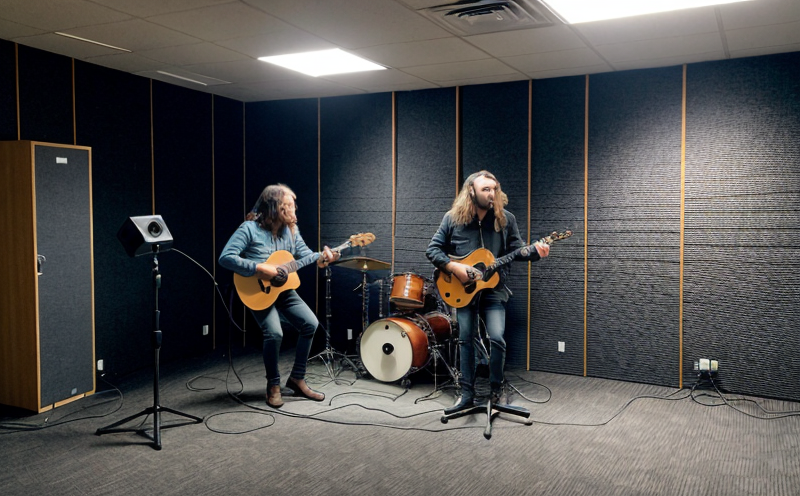ISO 2923-2 Sound Level Assessment for Fans
The ISO 2923 series of standards provides a comprehensive framework for measuring and assessing the sound emitted by fans. Specifically, ISO 2923-2 focuses on the measurement of sound levels produced by fans under steady-state conditions. This service is crucial in ensuring that fans meet noise regulations set forth by various jurisdictions.
Sound level assessment is a critical aspect of environmental compliance and product quality assurance. Fans are widely used across numerous sectors including HVAC, industrial machinery, transportation, and electronics. The noise they generate can significantly impact the acoustic environment where they operate. By adhering to ISO 2923-2 sound level assessment, manufacturers and users ensure that fans do not exceed permissible sound levels.
The process involves detailed setup, including placing a fan in a controlled environment with appropriate baffling to minimize background noise interference. The standard specifies the use of sound level meters capable of measuring A-weighted sound pressure levels (dBA) at various distances from the fan's exhaust port. This allows for accurate measurements that can be used to determine compliance with regulatory limits.
Understanding the importance of this service requires an overview of its application in real-world scenarios. For instance, in HVAC systems, fans operate continuously and their noise can influence both the comfort level of occupants and energy consumption patterns. In industrial applications, excessive fan noise could lead to worker dissatisfaction or health concerns. Therefore, conducting ISO 2923-2 sound level assessments helps in optimizing fan performance while maintaining acceptable noise levels.
The significance of this service extends beyond mere compliance; it also supports continuous improvement efforts within organizations. By regularly assessing fans against these standards, companies can identify areas for enhancement and implement necessary changes promptly. This proactive approach not only enhances reputation but also contributes positively to public health by reducing ambient noise pollution.
Why It Matters
- Ensures compliance with international noise regulations.
- Promotes better indoor air quality in residential and commercial buildings.
- Safeguards worker health by minimizing exposure to high decibel environments.
- Supports sustainable development goals related to reducing environmental impact.
Applied Standards
| Standard | Description |
|---|---|
| ISO 2923-2 | Provides guidelines for the measurement of sound levels emitted by fans in steady-state conditions. |
| EN ISO 1996-2 | Sets out procedures for determining noise emissions from stationary sources such as fans. |
Customer Impact and Satisfaction
- Reduces the risk of non-compliance penalties by ensuring regulatory adherence.
- Increases customer satisfaction through quieter, more efficient products.
- Maintains a positive brand image in environmentally conscious markets.
- Promotes long-term business success by fostering trust and loyalty among stakeholders.





